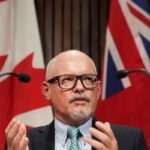In a significant blow to addiction services in British Columbia’s interior, the Williams Lake Mental Health and Substance Use Detox Centre has temporarily closed its doors, leaving vulnerable residents without critical support at a time when overdose deaths continue to plague the province. The Interior Health Authority confirmed yesterday that severe staffing shortages have forced the facility to suspend operations indefinitely.
“We’ve exhausted all recruitment options and simply cannot maintain safe staffing levels,” said Miranda Compton, Interior Health’s vice president of clinical operations. “This decision wasn’t made lightly, but patient safety must remain our priority.”
The six-bed facility, which opened in 2019 after years of community advocacy, provided medically-supervised detoxification services to residents across the Cariboo-Chilcotin region. Its closure represents another casualty in British Columbia’s ongoing healthcare staffing crisis, which has disproportionately impacted rural communities.
Williams Lake Mayor Surinderpal Rathor expressed profound disappointment, calling the closure “devastating for our community’s most vulnerable citizens.” In a statement to CO24 News, Rathor emphasized that the timing couldn’t be worse: “With winter approaching, we’re deeply concerned about those who will now have nowhere to turn when seeking recovery.”
Interior Health reports that existing clients have been transferred to facilities in Kamloops and Prince George—communities located approximately 285 and 240 kilometers away, respectively. This distance creates significant barriers for individuals seeking treatment and their support networks, according to addiction specialists.
Dr. Natasha Collins, an addiction medicine specialist at the University of British Columbia, told CO24 that geographic barriers significantly reduce treatment success rates. “When we remove people from their communities for detox, we see higher dropout rates and more challenges maintaining recovery after discharge,” Collins explained. “This is particularly true for Indigenous clients, who benefit tremendously from culturally-appropriate care within their home communities.”
The closure highlights the broader healthcare staffing crisis facing Canadian rural communities. According to the Canadian Institute for Health Information, rural areas have approximately 30% fewer healthcare professionals per capita compared to urban centers, with the gap widening for specialized services like addiction medicine.
The Canadian Centre on Substance Use and Addiction reports that opioid-related deaths in rural communities have increased by 41% since 2019, making access to detoxification services more critical than ever. In Williams Lake specifically, paramedics responded to 113 overdose calls in 2022—a 28% increase from the previous year.
Local Indigenous leaders have also voiced concern. Williams Lake First Nation Chief Willie Sellars described the closure as “another system failure that disproportionately harms Indigenous people.” Approximately 40% of the detox center’s clients identified as Indigenous, according to facility records.
Interior Health has committed to reopening the facility “as soon as staffing levels permit,” but has not provided a timeline. The health authority is exploring various recruitment strategies, including increased signing bonuses and housing assistance for potential staff.
In the interim, community organizations are scrambling to fill the gap. The Cariboo Friendship Society has expanded its harm reduction outreach services, while the Williams Lake Division of Family Practice is coordinating with local physicians to provide limited outpatient detox support.
As winter approaches and the opioid crisis continues unabated across Canada, one question remains at the forefront of this community’s mind: In a healthcare system already stretched to breaking point, what will it take to prioritize the specialized services needed by those struggling with addiction in rural communities?
























